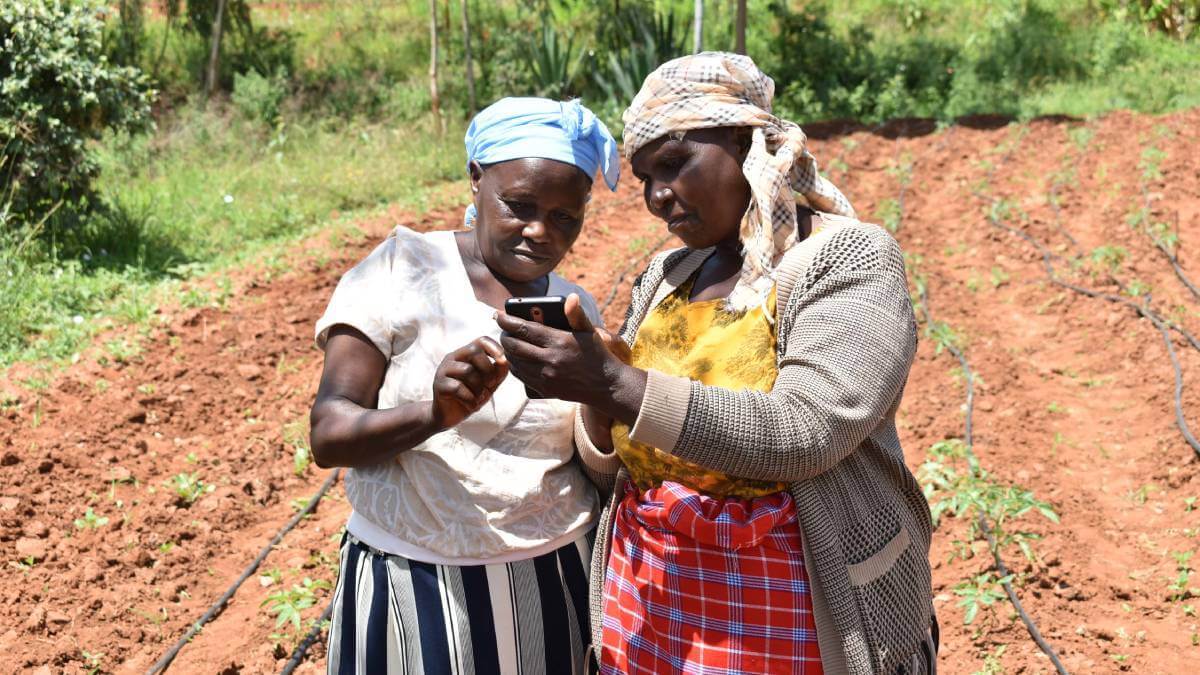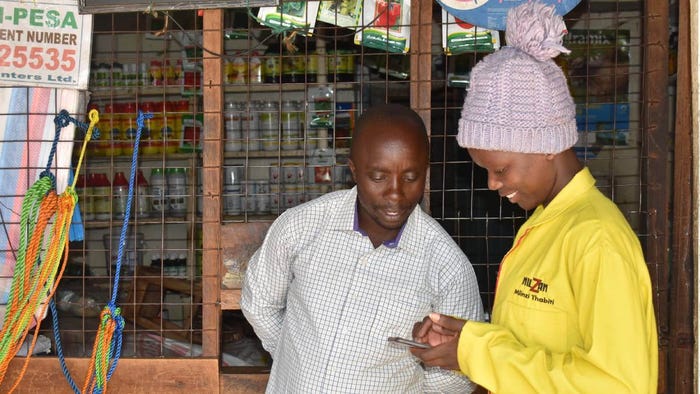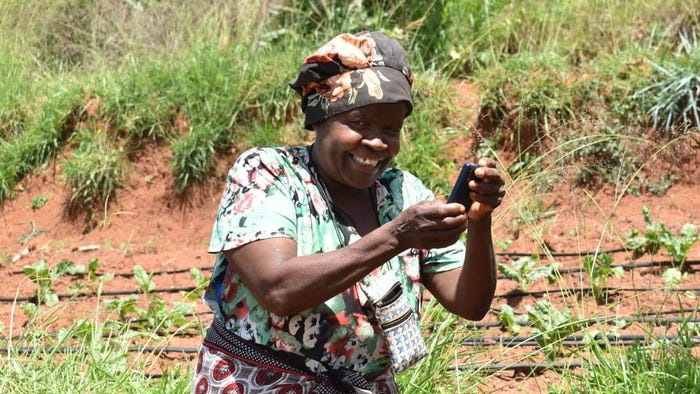Hot startup of the month: Kenya's Shamba PrideHot startup of the month: Kenya's Shamba Pride
This month's hot startup, Shamba Pride, wants to revolutionize the rural agricultural trade ecosystem in Kenya by transforming agro-dealers into franchised 'DigiShops.'

Kenyan agritech startup Shamba Pride is digitizing existing informal agro-dealers and transforming them into franchised "DigiShops" as it bids to revolutionize the rural agricultural trade ecosystem in East Africa.
Founded by Samuel Munguti in 2016, Shamba Pride helps farmers access high-quality farm inputs, financing, insurance and access through an online-to-offline platform that provides tools and technology to retailers to train them to provide quality agricultural products, finance and insurance to their farmers.
Its positioning is different to many in that it looks to improve existing value chains, rather than replace them.
"Through Shamba Pride, last-mile agro-dealers and cooperative entrepreneurs are able to digitize their operations and provide smallholder farmers with right and affordable technology, quality products and services, thus creating a community of smart micro-entrepreneurs serving the smallholder farmer community," said Munguti.
The startup transforms the most promising stores into DigiShops, with its platform connecting last-mile stores and farmers with manufacturers of quality inputs and services, thereby addressing problems of quality and price exploitation, promoting transparent supply chain systems.
"Secondly, the platform supports these micro entrepreneurs' professional development through image and capacity development to be able to offer improved retail experience, and third offers a technology that supports store digitization, inventory management and farmer extension support," added Munguti.
The reach of DigiShops is potentially huge. The majority of smallholder farmers depend on informal agro-dealer stores and cooperatives to access inputs and key services, which are beset by poor supply, poor management and exploitative prices.

A DigiShop pipeline candidate in Kitale town.(Source: Shamba Pride)
"Lack of access to quality and affordable agriculture inputs, service and information has created a cycle of low farm productivity and reduced income to smallholder farmers.
"While there are many innovations and technologies around irrigation, drought tolerant seeds and crops, and weather information, they remain missing at village level and are poorly accessible to rural farmers who need them most," Munguti said.
"Shamba Pride’s model leverages on mobile technology and a franchising model of business to deliver both extension and inputs solution to village-level smallholder farmers."
The rural agricultural commerce ecosystem in Africa is still driven by trust, relationships and physical interactions, but without a digital interface, its potential is largely untapped. Rural distribution of agriculture, inputs, services and information is poor, and is trapping farming families in a cycle of poor farm productivity and poverty.
Shamba Pride addresses this, and it currently has a network of 1,300 registered agro-dealers, adding many more each month. Eighty of those have transitioned into fully-fledged DigiShops, with the startup currently graduating ten shops from its network pool to DigiShops each month.
"Our current DigiShop network services directly 30,000 farmers, with this number growing at 15% every month," said Munguti.
For its part, Shamba Pride takes transaction margins from inputs and services distributed through its marketplace platform, while it has also begun building additional revenue lines from credit, insurance and market linkage products.
Pan-African plans
Shamba Pride closed a US$1.1 million seed round in the last quarter of 2021 and will open a Series A round shortly. The idea is that this round will fund regional and pan-African expansion. "We are currently covering Western, Eastern, Coast and Central Kenya, and targeting national coverage by December 2022, before rolling out pan-African expansion in 2023 with initial launches in Zambia and Tanzania," said Munguti.
He said he sees huge opportunities in the African agriculture sector.
"Traditionally agriculture has been a major driver of African economies. With climate change impacting negatively on agriculture, and population growth and food security becoming a major concern globally, agritech will continue to be a key sector. Decade-long challenges can be solved at scale and more sustainably through leveraging on agriculture technology," he said.

Shamba Pride customer Jane Mutua.(Source: Shamba Pride)
Munguti said African governments have struggled for many years to solve last-mile farmer education, which has traditionally been done through physical interactions.
"Agritech companies like Shamba Pride are now solving this farmer extension delivery challenge more sustainably and cost effectively through technology. It is the same with last-mile distribution, and supply chain bottlenecks which have traditionally been the root cause of counterfeit products, price exploitation and fragmented distribution. Leveraging on technology increases transparency in both pricing and logistics, thereby solving product traceability challenges."
Want to know more about African startups and new innovations on the continent? Check out our Innovation Hub here on Connecting Africa.
Shamba Pride may have accessed investment in order to try and scale up its operations, but Munguti said there was generally not enough investment into the sector.
"Compared to other sectors like fintech, agritech is not receiving the right capital backup, which is key to accelerating growth in the sector. There is need for investors to give more attention to the agritech space, which plays a key role in guaranteeing communities food security and income," he concluded.
Related posts:
*Top image is of Muema group members using the DigiShop platform. (Source: Shamba Pride).
_(1)_(1).jpg?width=700&auto=webp&quality=80&disable=upscale)
.jpg?width=700&auto=webp&quality=80&disable=upscale)
_(1).jpg?width=700&auto=webp&quality=80&disable=upscale)

.jpg?width=700&auto=webp&quality=80&disable=upscale)
.jpg?width=700&auto=webp&quality=80&disable=upscale)
_(1).jpg?width=700&auto=webp&quality=80&disable=upscale)
.jpg?width=700&auto=webp&quality=80&disable=upscale)

.jpg?width=700&auto=webp&quality=80&disable=upscale)